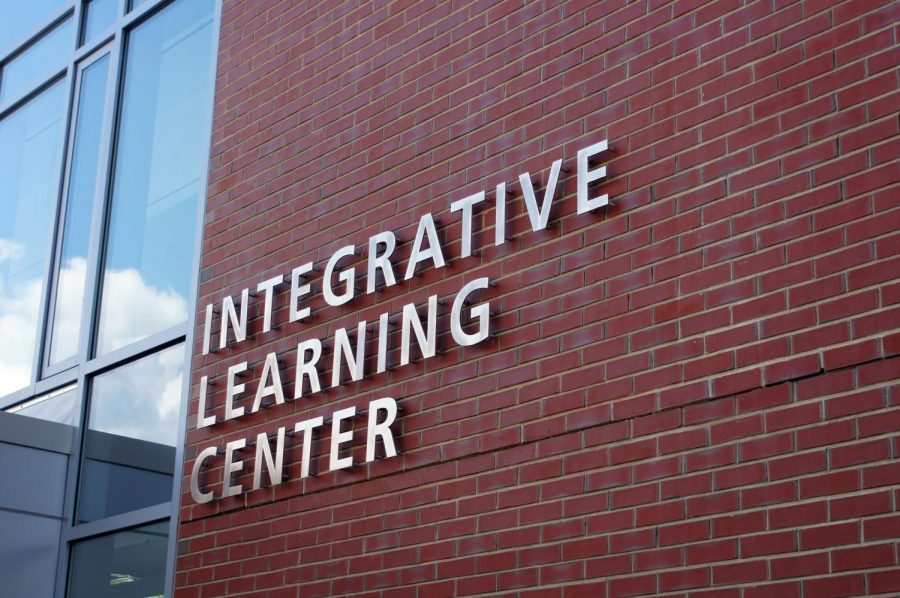The School of Social and Behavioral Sciences at the University of Massachusetts held a panel discussion on Wednesday night on the spread of disinformation and “fake news” through social media both historically and in the modern world.
The panel was comprised of members of the Department of Communication at UMass: Assistant Professor Jonathan Corpus Ong, Senior Lecturer Martha Fuentes-Bautista, Assistant Professor Wayne Xu and Lecturer and Chief Undergraduate Advisor Allison Butler.
The event, titled “Debating Disinformation: Social Media and Electoral Manipulation in Comparative Perspective,” showcased various aspects of the spread of disinformation in both the present and in the past, with an emphasis on the use of disinformation in a global context, rather than focusing on just recent examples occurring in western nations. To Ong, analyzing disinformation through a global context is crucial.
“There is a real challenge here as well to de-westernize this literature, which really takes as a starting point Brexit and Trump,” Ong said. “But we want to also consider… the global south as, sadly, also a site of populous innovation and insidious technological experimentation.”
Ong went on to characterize and understand the spread of disinformation in the Philippines that occurred during the election of Filipino President Rodrigo Duterte in 2016. According to Ong, based on 12-month field research conducted in the Philippines, many of the hackers and producers of disinformation were individuals who did such work as side jobs or for supplementary income, and much of the spread of misinformation was dependent on grassroots efforts and the public sharing it through social media.
Following Ong’s talk, Fuentes-Bautista spoke to the crowd of roughly 30 people about efforts by former President of Venezuela Hugo Chavez to control Venezuelan media and to ensure a pro-government message was reaching the public. Such efforts included combatting opposition from big media outlets and passing media reforms.
Fuentes-Bautista also argued that negative public opinion of a political organization, particularly in the case of Venezuela, can lead to further use of the media to spread political messaging.
“In a political system, [for] all parties that are more and more criticized and distrusted by all kinds of people in the country, and by popular movements in particular, media becomes a place for political organizing,” she said.
In his talk, Xu presented research conducted based on online interactions between the alt-right and the Antifa, two political groupings that are generally ideologically opposed. According to the research, little interaction was found between the two groups, as, for example, common retweets on Twitter between the two groups was only liked to one pro-Bernie Sanders account that has since been deleted.
To Xu, the lack of interaction between the two sides is troubling.
“If we don’t see a lot of confrontation across the political aisles, maybe that’s really a very bleak picture for the already very partisan world,” he said.
In contrast, Butler discussed local efforts to combat the spread of disinformation, particularly through how she has presented webinars to a variety of libraries and teachers in Massachusetts that provide resources in teaching students how to determine the validity and trustworthiness of the news they read. According to Butler, providing these lessons is extremely valuable in fighting against the spread of disinformation.
“This is one of the ways in which we start talking back,” she said. “We start talking back to the mainstream press, we start talking back to the misinformation, we are teaching students through experience how to do their own research, how to evaluate a story as opposed to just being told here is a way to evaluate a story… this is a way, on a small, local level, of combating misinformation.”
The event served as the culmination of the Mediating Care and Justice Seminar series and was supported by an SBS college grant. The series features a variety of events relating to different aspects of the media.
During the question and answer section of the event, Xu argued that in addition to just stopping the spread of disinformation, it is important to understand why such information is being spread.
Xu said, “We inject too much bias, too much of our own perspective, but we do not talk necessarily about ‘how come people have these populist or racially motivated thoughts’ and… I think we need to look under the surface of those thoughts.”
Will Mallas can be reached at [email protected].





















John aimo • Apr 19, 2018 at 1:31 am
The ministry of truth held a discussion on what is ‘right’ and ‘wrong’ information and thoughts. Then discussed how to effectively censor the ‘wrong’ information and ‘understand’ the wrong thinking of those who for example are populis.
A perfect nobody takes colleges or professors seriously, for one they are so arrogant to presume they know the truth and what is right and secondly they abuse taxpayer and student paid positions to peddle their opinions which everyone knows is some variation of social justice warrior ideology, marxism, everyone is oppressed except the evil white man, etc.
Professors should wake up and realize how nobody cares what they have to say. Just look at a classroom, always half the class has a laptop.or smartphone in their hands, maybe one or two students are taking the notes, the rest are chatting, on social media, shopping.